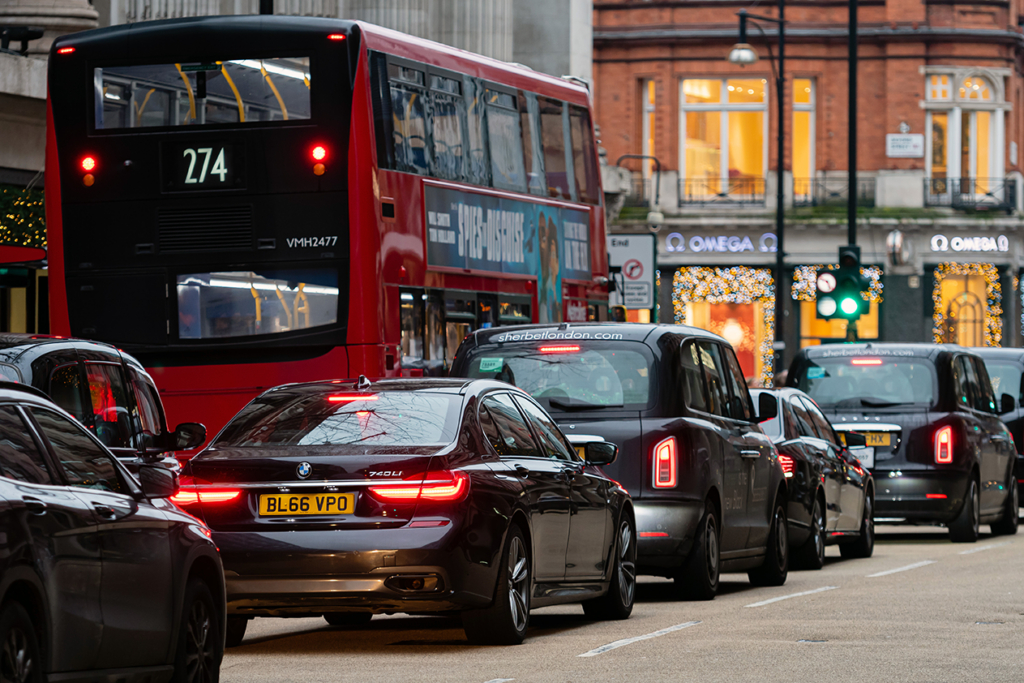If you’ve ever inched through London’s roadways at rush hour, it won’t surprise you to learn that the city has once again claimed the top spot in the Top Congested Cities in Europe Ranking (Source: INRIX). In fact, it’s the fourth year running that European Congestion data has placed London at number one. Drivers in the capital are losing an average of 101 hours per year to city congestion, which is a 2% increase from last year. That’s a hefty time investment no matter how you look at it.
The financial figures paint an even clearer picture of London Traffic Congestion Costs. The total price tag of wasted hours and delayed journeys sits at a staggering £3.85 billion, working out at around £942 per driver. That goes up to £7.7 billion nationwide. This isn’t pocket change for individuals, and it’s certainly not a trivial cost when viewed on a national scale. No wonder London Traffic remains a hot topic in both local and national media.
Top 10 Worst Traffic Delays In Europe (Hours Spent in Congestion)
- London – 101 h
- Paris – 97 h
- Dublin – 81 h
- Brussels – 74 h
- Rome – 71 h
- Warsaw – 70 h
- Bath – 68 h
- Ljubljana – 67 h
- Galway – 67 h
- Bristol – 65 h
So, why does London keep topping the charts? One big reason is the sheer scale of its population and economy. How population density affects traffic in London is pretty straightforward: more people packed into the same space with limited road capacity leads to serious urban transport woes. London’s draw as an economic hub means millions of commuters stream into and out of the city every day, putting constant pressure on the transport infrastructure.
Impact of Congestion Charges
London introduced its Congestion Charge Zone back in 2003 in an attempt to ease traffic. While it initially helped reduce the volume of cars, the problem clearly hasn’t been solved. Some might argue we need more nuanced measures, perhaps expanding the charge zone or investing in alternative travel modes. Transport for London has made efforts to boost walking and cycling routes and upgrade public transport links, but the numbers suggest we need fresh ideas to chip away at those 101 hours of lost time.
Plan Insurance can provide bespoke taxi insurance quotes for all UK drivers. Just fill in our short online questionnaire, and our professional brokers will be in contact to arrange your insurance.
Of course, London isn’t the only European city grappling with traffic issues. Paris, Dublin, and Rome also feature in the top five, proof that European Congestion is not a one-city show. Globally, London ranks fifth, with Istanbul leading the pack worldwide. If there’s a silver lining, it’s that other cities can learn from London’s experiences – the missteps as much as the successes – to tackle their own traffic headaches before they swell to capital-sized proportions.
The Insurance Perspective
More cars on the road often mean a higher risk of accidents and claims. Lengthy commutes can drive up stress levels, and congested streets can increase the likelihood of fender-benders. That’s one reason drivers often notice changes in their premiums when they move to busy city centres.
Top 10 Worst Traffic Delays In The World (Hours Spent in Congestion)
- Istanbul – 105 h
- New York City NY – 102 h
- Chicago IL – 102 h
- London – 101 h
- Mexico City – 97 h
- Paris – 97 h
- Cape Town – 94 h
- Jakarta – 89 h
- Los Angeles CA – 88 h
- Brisbane – 84 h
Do we need to change the way we think?
For anyone keeping tabs on the Governments Sustainable Travel Solutions, London can serve as both a case study and a cautionary tale. Simply introducing a congestion charge won’t fix gridlock overnight, but it can pave the way (no pun intended) for more radical improvements down the line. Encouraging remote work, investing in robust public transport, and promoting cycling as a mainstream commute option are all strategies that could shift the balance away from reliance on private cars.
Even if you don’t live in the capital, London’s situation might prompt you to think twice about your daily travel. Could you car-share? Is there a local bus route that makes sense for part of your journey? Every small change helps. And who knows, if enough drivers embrace alternative commuting, maybe the capital won’t always be the poster child for Europe’s gridlock.
At the end of the day, London Traffic is an issue that extends beyond frustration and inconvenience. It strains our working time resource, costs businesses money in additoanl overheads as well as hitting our personal wallets, and in many cases, our well-being. A combination of practical policy changes, personal choices, new infrastructure and continuous investment in greener, more efficient transport might be the only way out of the current mess. It’s a tall order, but London – and the world – could certainly use some breathing room on the roads.
Find out why 96% of our customers have rated us 4 stars or higher, by reading our reviews on Feefo.


